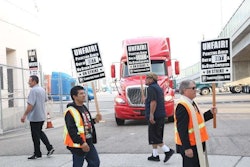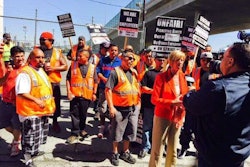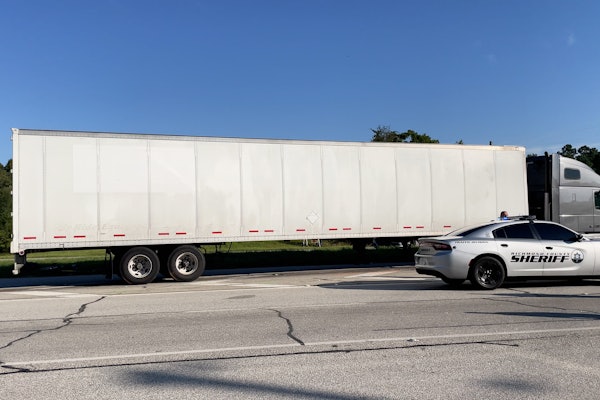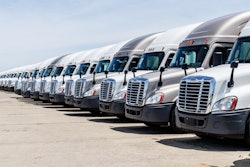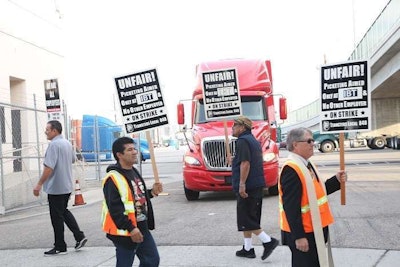
A bill introduced in the U.S. House last week would, if passed, direct the Labor Department and Department of Transportation to develop a task force to study the implications on port truckers and their paychecks of the common — and often controversial — truck leasing practices of drayage carriers.
It’s common at major ports for carriers to hire drivers as independent contractors and deduct from their paychecks the cost of uniforms, truck payments and insurance and more.
Citing existing research into the matter and a major investigative report from USA Today showing that such deductions leave drivers with little actual take-home pay, a contingent of Democratic lawmakers in the House filed the Port Drivers Bill of Rights Act of 2017 last week. Port truckers also claim they bear the brunt of compliance with ever-tightening emissions standards instituted at major ports in California and elsewhere.
Though the bill doesn’t take aim at the leasing practices directly, it does call for the task force to determine how the independent contractor model affects port truckers’ paychecks, whether such agreements are legal relative to state and federal labor laws and whether further legislation is needed to “protect the ability of truck drivers to earn a living wage.”
The lawmakers introduced the bill with the backing of the Teamsters Union, which has in recent years directed various actions to protest both the cost of emissions compliance and the independent contractor model used by drayage carriers on both coasts but particularly in California. The bill’s backers call the truck leasing practices by port carriers “a scheme to underpay hard working truck drivers.”
However, research conducted in 2015 by the carrier-backed California Trucking Association showed independent contractors earn more than their company driver counterparts, though drayage operators were only one component of the study, which also included long-haul drivers.
Courts have been split on the issue, but have several times sided with driver plaintiffs who have sued their carriers claiming they’re misclassified and, thus, are victims of wage theft. The California Labor Commission has also several times ordered drayage carriers operating in the state to pay millions of dollars in back pay to drivers operating as contractors.
The bill and its companion Clean Ports Act of 2017 were filed by Rep. Grace Napolitano (D-Calif.) and are co-sponsored by Reps. Jerrold Nadler (D-N.Y.), Alan Lowenthal (D-Calif.) and Nanette Diaz (D-Calif.).
“Hundreds of port truck drivers are being forced into working as independent operators as a way for their employer to pay them below minimum wage and deny them benefits, creating an unlivable wage for them and their families,” said Napolitano when introducing the bill. “These drivers are compelled to lease trucks at prices they cannot afford. My [bills] are important measures that we hope will restore justice and dignity of truck drivers and their families.”
For the bill to become law, it must be passed by both the House and the Senate, and signed by the president.




